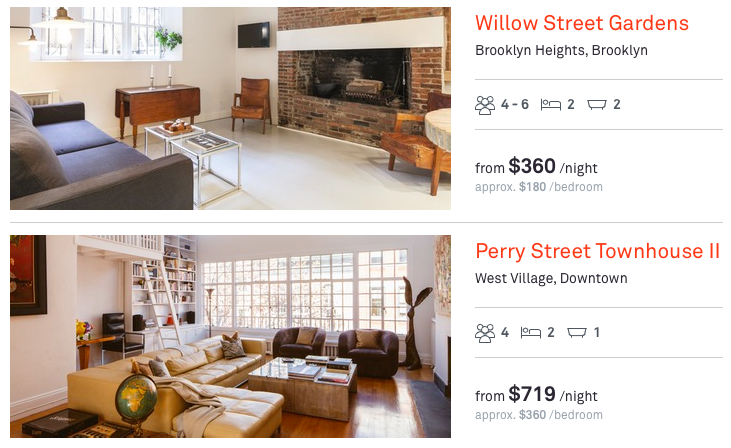Are You a Hotel?

Airbnb works at nothing so hard as arguing that it is good for the local economies — bringing new, spendy people to town while it helps regular folks pay their rent — and not a twenty-four-billion-dollar company that is siphoning off an already highly constrained supply of apartments in cities like New York. Except, perhaps, putting forward the idea that it is most definitely not a hotel operator. This is largely for regulatory, rather than rhetorical, reasons — allowing Airbnb and its hosts to duck taxes, rules, and other annoying government things that would get in the way of smooth, efficient distribution of space for optimal revenue generation.
And yet! It turns out that when one company manages an enormous inventory of temporary lodgings, the gravity of efficiency tends to pull it and its agents toward acting, in many ways, just like a hotel operator. As Airbnb has passed forty million users, the gravity toward that model has become so strong now that, as the New York Times shows, a secondary industry has emerged to sell the services and accommodations that Airbnb has so far willfully declined to provide in order to continue to semi-credibly claim that it is not a hotel operator, like professionalized cleaning services (which Airbnb is now testing, haha):
“We make it completely seamless and hassle-free for the owner and the guest as well,” said Evan Frank, a founder of onefinestay, a five-year-old company offering end-to-end rental management for upscale homes in New York, Los Angeles, Paris and London.
To ensure you don’t have to lift a finger, onefinestay first photographs and then stores your personal possessions, including the soap in your shower. It replaces your toiletries with its own toiletries. Beds are made with hotel-quality linens and refrigerators are stocked. Before you return, everything is cleaned and put back the way it was, right down to that bar of soap.
Onefinestay won’t take on just any old place. You must apply to be accepted on its roster. If your abode is deemed worthy, the company will list it on its site, as well as on HomeAway, VRBO and other rental sites, handling reservations, collecting and remitting occupancy taxes and meeting guests for check-in. For such high-touch service, onefinestay takes anywhere from 20 percent to 50 percent of the proceeds, depending on how often and for how long you plan to rent out the space.
By focusing on details that rental hosts may not have the time or disposition for, the start-ups aim to bring hotel standards to the online vacation rental market. Onefinestay requires each property in its portfolio to adhere to strict standards outlined in what Mr. Frank describes as an “inch-thick” manual, from the number of wine glasses available for guests to the thickness of the mattress (at least five inches).
It almost sounds… like a hotel? Pop quiz: Who is the hotel operator here: the host, onefinestay, or Airbnb?
